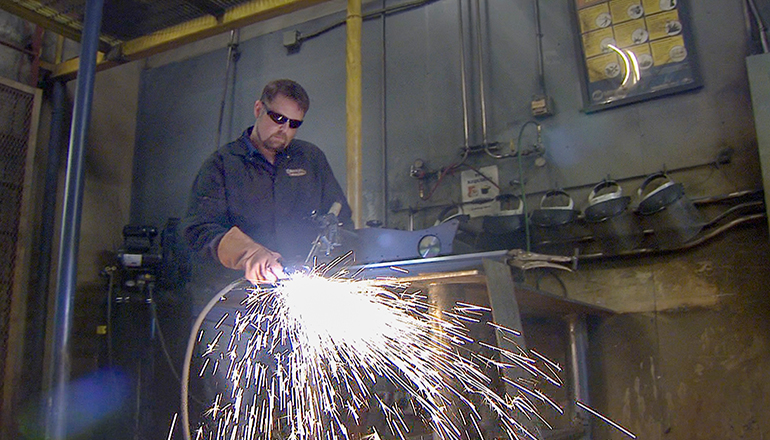Scott Hoad was at a low point this spring, trying to piece together a decent living after being laid off from a job painting commercial aircraft. Then Hoad crossed paths with Amy Patillo, a University of Missouri Extension labor and workforce development specialist based in Springfield.
Hoad’s brother owns the ranch where Patillo boards her horse. When she met Scott Hoad and learned about his struggles, she got to work doing what MU Extension does best: helping make life-changing connections.
In this instance, Patillo connected Hoad with Steven Butts, who heads the Disabled Veterans Outreach Program at the regional Missouri Job Center in Springfield, part of the statewide network of job centers operated by the Missouri Department of Higher Education and Workforce Development.
“Our role at extension is to be the connector and convener, building relationships with workforce organizations and leaders across the state,” Patillo said. “When local communities and individuals have needs, we can help get them to the right resources.”
The Missouri Job Centers are one such resource, offering comprehensive connections to employers as well as contacts and services related to career readiness and postsecondary education.
Hoad, a former Marine, learned he was entitled to GI Bill educational benefits. Butts helped him explore trade school options, and Hoad applied his benefits toward an eight-month welding program at the Midwest Technical Institute.
Employers — even those who have served in the military themselves — often have a hard time seeing how the skills veterans honed in military service transfer to civilian life, Patillo said. The Missouri Job Centers help veterans assess their skills and translate them into the language of the civilian job market.
“Sometimes you just need that program, that boost, those connections to help you understand and communicate the value you bring,” Patillo said. “And that is the value of Extension. Because we are statewide and local, we work hard to build the relationships that connect people with important resources like these.”
In Hoad’s case, that chance encounter at the horse ranch opened the path to a new career: “I’m so happy I have this program because it improves my and my family’s life.”







